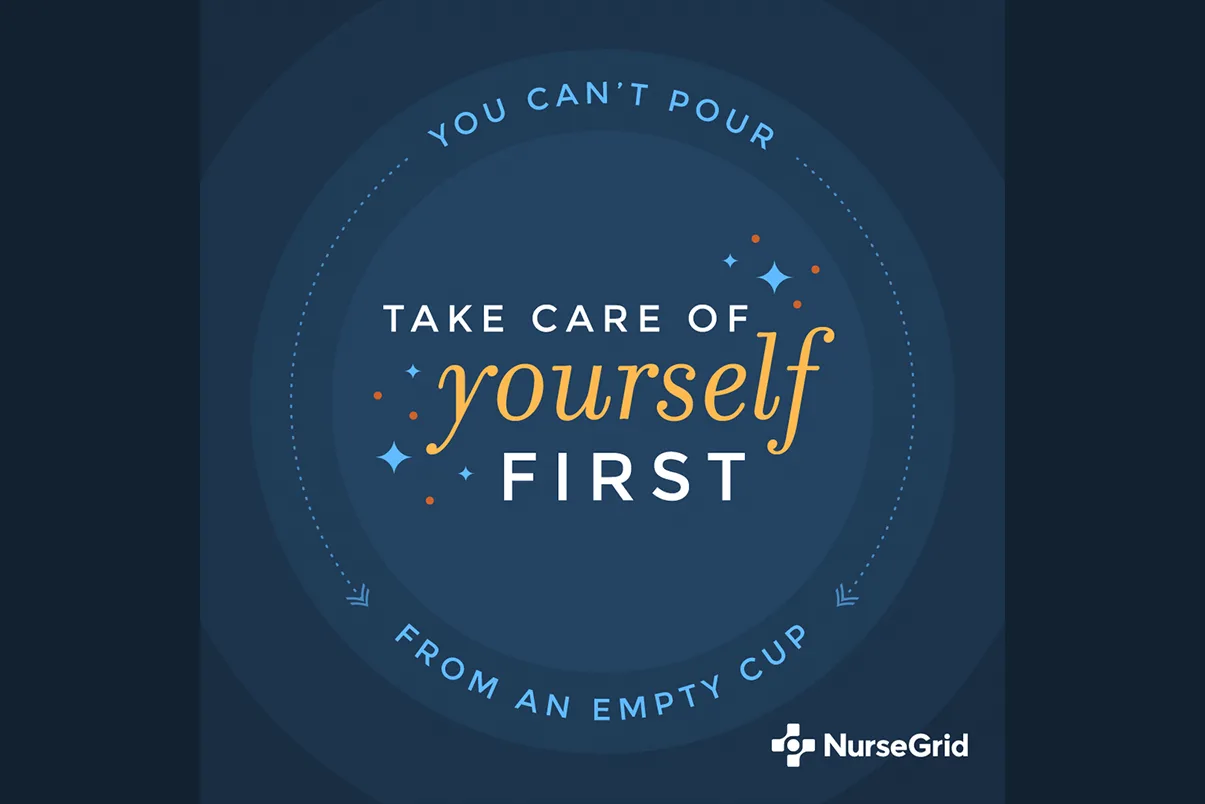Finding Time for Self-Care as a Nurse: Tips from a Tier X Coach

An Interview with Rolando Garcia, E Manager of E Columbus Circle ~ Equinox Gym NYC, Tier X Coach, Author, Intrinsic Excellence
As nurses and healthcare providers we are constantly busy caring for others, saving lives, and meeting the basic needs of those who come to us in a vulnerable health state. One might assume that our schedules, which are usually 12-hour shifts 3 days a week, would allow for regular workouts on our days off. However, the truth is that we are an overbooked, family-first, instant gratification seeking, organic food buying, world traveling, overtime working, texting, snapping, messaging on our iPhones, ambitious new generation of caregivers.
We know the benefits of a consistent gym routine, cardio, weight lifting, Pilates, yoga, a balanced diet, etc. But even for those of us who can fit that all in, most of us find ourselves tired, snacking on treats we find in a break room, making trips to the vending machine, or settling for something less than ideal in the cafeteria. Which leaves us asking, are there specific tips or exercise recommendations for those of us on these physically demanding 12-hour schedules?
Instead of endlessly searching for answers via the Internet, reading countless articles on exercise, fitness, and nurses who are also personal trainers, I sought out a top professional in the field of athletic training, exercise physiology and nutrition to discuss the topic.
Rolando Garcia manages E, a private gym within Equinox exclusive to those members pursuing the absolute premium personal training services a gym could offer. But let’s cut out all the fancy amenities, exclusive training area, and gym perks. What Rolando and I discussed had nothing to do with the gym. And coming from someone who has a family member in healthcare working full time in the hospital, he knew firsthand the challenges and obstacles most of us face, as well as the excuses we so often make. He also talked about what could be lacking from our daily routine that keeps us from getting the full benefits from our workouts.
Below is Rolando’s best advice for busy healthcare providers and tips for how we can improve our health, one day at a time.
Sleep
For many healthcare providers, getting a full, well-rested 8-10 hours of sleep seems impossible. We get home, eat, shower, take care of families and relationships, and then attempt to wind down. I know personally that this “winding down” step can take a solid hour or two at least, depending on how insane the day was. Americans tend to get an average of 6-7 hours of sleep. And while recommendations vary, overall, research is consistent in saying adults need 7 to 8 hours of good quality sleep on a regular schedule each night.
Breathing
Rolando mentions that his clients subconsciously breathe in a self-induced stress-like state. They breathe using both shoulders and just their upper chest, which puts them almost in a fight or flight mode, triggering a stress response. In this state, cortisol levels may begin to rise, your heart rate increases, blood pressure elevates to compensate, and vascular tone constricts. Changing this breathing pattern takes practice, but it is vital prior to successfully beginning a new fitness routine and implementing lifestyle changes that complement the efforts.
He encourages focused diaphragmatic breathing or abdominal breathing; being aware of your breath in a way that is very similar to meditative practices. This technique reduces tension, contributes to good posture, aids in lymphatic drainage and re-calibrates the autonomic nervous system.
Caffeine / Alcohol / Smoking
We all know the risks of the overindulgence or use of any vice, such as caffeine, alcohol, smoking, etc. Keeping these to a minimum is the best advice for anyone. If you find yourself drinking energy drinks all day, smoking regularly between shifts, or overindulging in after-work drinks regularly, you should consider finding help to change these habits. As always, follow your physician’s guidelines and advocate for your own well being first and foremost.
Stress
Finding a nurse that works full-time, provides for his or her family, gets 8-10 hours of rested sleep a night, and eats 3 balanced meals a day is like finding a unicorn – they don’t exist. Yes, there are certain personalities in this profession that thrive on the adrenaline, the high-stress situations, and higher acuity patients, but is it healthy after several years?
Does this stress make some of us happier in our careers? Does exercise relieve any of this? The opinions are mixed. I could paraphrase research that states, yes, exercise benefits everyone. I could also restate Rolando’s theory of maintaining an overall approach to doing what it takes to eat better, sleep more, be aware of your breathing patterns and strive to create healthier decisions to lower stress.
But, like everything, how you actually do all of this is different for everyone. The important thing is that, in the busy, stressful, demanding position of a healthcare provider, we work to maintain our health, looking beyond the walls of the gym and into aspects of our lives that we truly have control over.
Written by Angela Johnson. Angela is the Owner and Founder of LivTemp, a business dedicated to creating a supportive community for travel healthcare professionals looking for housing solutions around the country. She is a registered nurse with a BSN from the University of Central Florida and over 15 years of experience in the ER and ICU.